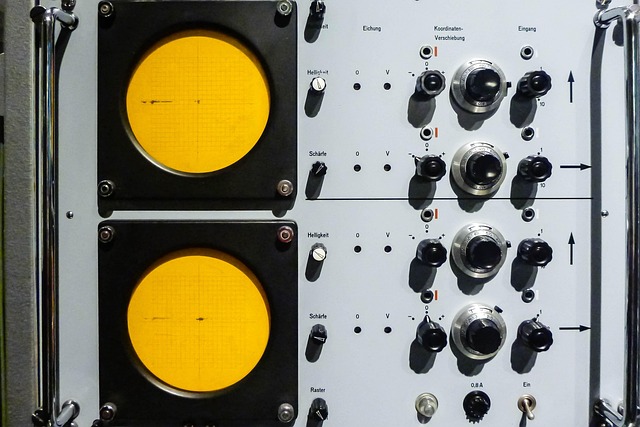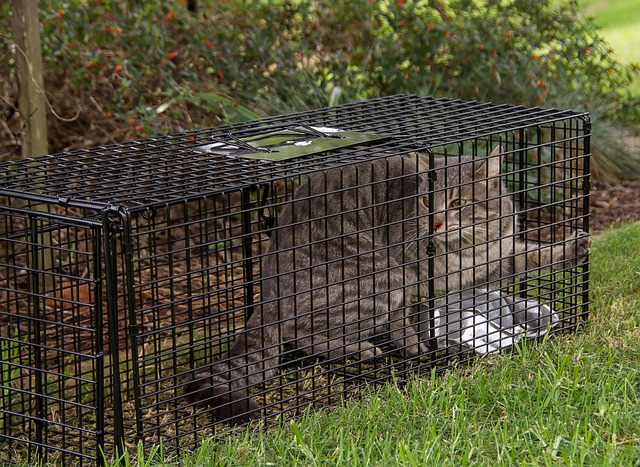If you notice a musty odor in your Wheat Ridge basement, it likely indicates a raccoon infestation, posing health risks and potential property damage. To address this, identify entry points, seal them with materials like steel wool or concrete, and contact professional pest control services for effective exclusion methods. Regular monitoring, inspections, and maintenance are crucial for long-term protection against raccoons, preventing re-infestation by sealing gaps, keeping areas clean, and securing trash cans. Act promptly to find and eliminate the source of musty smells in your basement using reliable pest control measures.
Are you plagued by a persistent musty smell in your Wheat Ridge home, especially in dark spaces like the basement? It could be a raccoon infestation. This article guides you through identifying the problem and developing an effective pest control raccoon exclusion plan. We’ll walk you through understanding the source of the scent, creating a comprehensive strategy for exclusion, and implementing long-term solutions to keep these furry intruders at bay, eliminating both their presence and the musty smell once and for all.
- Identifying Raccoon Infestation and Musty Smell Origins
- Developing a Comprehensive Exclusion Strategy
- Implementation and Maintenance for Long-Term Protection
Identifying Raccoon Infestation and Musty Smell Origins

If you’re noticing a musty smell seeping from your Wheat Ridge basement, it could be an indication of a raccoon infestation. These clever critters are known to take up residence in attics, walls, and even basements, leaving behind a distinctive odor as they rummage through your space. The musty scent is often the first hint that something is amiss, especially if it’s strongest in darker, less-used areas of your home.
Racoons are not only a nuisance but also carriers of diseases and parasites. They can cause significant damage to property by gnawing on wires, wood, and even drywall. To confirm an infestation, look for signs like tracks, droppings (which resemble large, dark coffee grounds), or damaged areas that might suggest their presence. Identifying the exact entry point is crucial; racoons are skilled climbers and can gain access through chimneys, vents, or broken windows. Once the source of the smell and potential entry points are located, professional pest control services can implement effective exclusion plans to safeguard your home.
Developing a Comprehensive Exclusion Strategy

When addressing raccoon exclusion, a strategic approach is key to success. It’s essential to start by identifying and sealing all potential entry points into your Wheat Ridge home or basement, focusing on areas where musty smells may indicate an existing problem. This could involve checking for loose bricks, gaps around pipes or vents, or any other openings that could provide easy access. A thorough inspection is crucial to developing a comprehensive plan.
Once identified, these entry points should be secured with appropriate materials like steel wool, concrete, or metal sheeting, ensuring no raccoons can re-enter after exclusion. This process might require some DIY skills and the right tools, so if you notice a musty smell in your basement, consider enlisting professional pest control experts who can provide tailored solutions and guarantee effective raccoon prevention.
Implementation and Maintenance for Long-Term Protection

Implementing a raccoon exclusion plan is just the first step; maintenance and consistent monitoring are key to ensuring long-term protection for your Wheat Ridge home. Regular inspections should be conducted, especially during seasons when raccoons are most active, to identify any new entry points or signs of re-infestation. Sealing all gaps, holes, and vents with appropriate materials like steel wool or concrete is crucial to keeping them out.
Additionally, maintaining a clean environment, removing potential food sources, and securing trash cans with tight-fitting lids can deter raccoons from returning. Remember, finding the source of a musty smell in your basement could indicate an ongoing infestation—prompt action and continuous maintenance are essential for complete pest control.
Identifying the root of a musty smell, often an indicator of raccoon infestation, is the first step towards effective pest control. By developing a tailored exclusion strategy that addresses entry points and potential habitats, homeowners in Wheat Ridge can ensure long-term protection. Regular maintenance and monitoring are key to preventing re-infestation, offering peace of mind and a fresh, odor-free basement. This proactive approach to raccoon management is essential for maintaining a healthy living space and avoiding the costly damage these creatures can cause.
